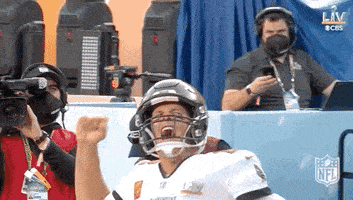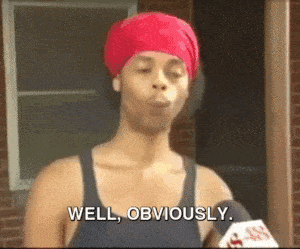Two Sundays ago the Buccaneers won the Super Bowl. Unless you were a Bucs or Tom Brady fan, the game wasn’t particularly exciting. The Bucs controlled the entire game and kept the Chiefs, the best offense in the NFL, from scoring a single touchdown.

Although I’m not the biggest Tom Brady fan, what he’s been able to accomplish in his career is unbelievable. In his 20 seasons, he’s been to 10 Super Bowls and has won seven. He now has more Super Bowl wins than any NFL franchise.
If you’re familiar with Tom Brady you know that he was the 199th pick in the 6th round of the 2000 NFL draft. It’s amusing to read the old scouting reports predicting what kind of player he would be and contrasting them with the paragraph above.
The following is an excerpt from a scouting report on Tom Brady:
Negatives: Poor build. Very skinny and narrow. Ended the ’99 season weighing 195 pounds and still looks like a rail at 211. Looks a little frail and lacks great physical stature and strength. Can get pushed down more easily than you’d like. Lacks mobility and ability to avoid the rush. Lacks a really strong arm. Can’t drive the ball down the field and does not throw a really tight spiral. System-type player who can get exposed if he must ad-lib and do things on his own.

There was a shorter, positive section of the scouting report which included some mild compliments, but nowhere did it say, “He has the potential to win seven Super Bowls.”
Professional scouts have an extensive process to evaluate players. They develop their own metrics, run prospects through drills and tests, and conduct thorough interviews. But despite all of these fancy metrics, the best quarterback of all time was taken 199th in his draft.
To quote Jack Bogle, investment mogul and founder of Vanguard:
“Nobody knows nothing.”
Logically, this statement suggests that “everybody knows something,” but that’s not its intent. What he’s saying is that no one, not even the “experts,” can predict what will happen.
Similar to professional scouts in sports, stock market analysts have metrics and formulas for evaluating stocks. And not unlike player evaluators, their ability to predict future performance is less accurate than flipping a coin.
Meteoric rises like Tom Brady’s or stocks like Amazon or Apple make us wonder how we could have missed something that seems so obvious now. Though, just like Brady, these companies were not obvious buys at the time. Things only appear obvious in hindsight.

Conversely, just because a stock is popular now or has had great returns in its recent history does not mean that trend will continue in the future. Stocks like Facebook, Amazon, Apple, Netflix, Alphabet (Google), and even Tesla seem infallible. They’re great companies that have grown so large it’s hard to see them ever underperforming or eventually receding as other companies take their place.
Yet, of the top 10 largest companies in the world by market cap in 1999, only 1 (Microsoft) is still in the top 10 today, and five of them aren’t even in the current top 100.
Morgan Housel writes about how when we are surprised by something we usually say, “I’ll never make that mistake again.” But that’s the wrong lesson. What we should learn from not anticipating something is that the world is difficult to anticipate. The correct lesson to learn from surprises is that the world is surprising.
“Things that have never happened before happen all the time.” — Scott Sagan
The opposing quarterback in the Super Bowl, Patrick Mahomes, is widely considered to be the next Tom Brady. There was a lot of debate before the game and this last week about Mahomes catching Brady as the best ever. While I can’t envision anyone ever winning seven Super Bowls again, maybe he will. Or maybe he won’t. Nobody really knows anything.
Thanks for reading!

